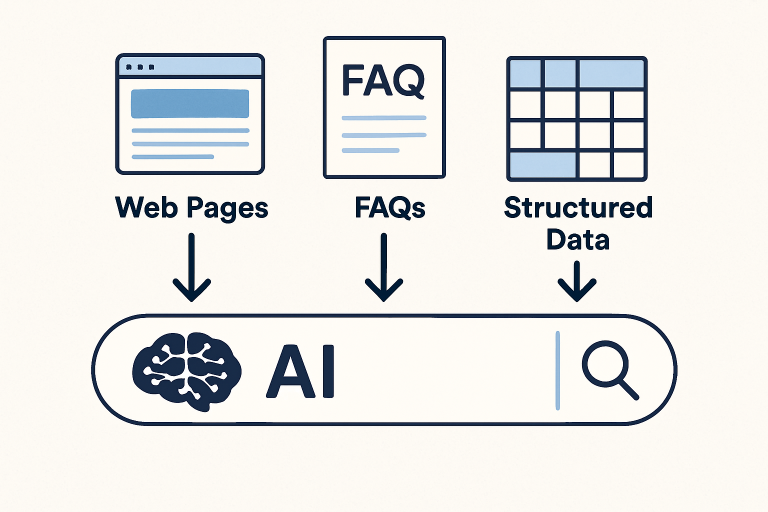Table of Contents
- Introduction
- Understanding AI-Driven Search Engines
- The Rise of Generative Engine Optimization (GEO)
- Key Strategies for GEO
- Implementing Structured Data
- Enhancing Content Quality
- Monitoring and Adapting to AI Algorithms
- Conclusion
The evolution of artificial intelligence is radically transforming the way search engines process and deliver information. As AI capabilities mature, traditional SEO strategies must evolve to ensure your content remains visible and influential. Navigating this new landscape is vital for brands looking to stay ahead, and solutions such as SEO solutions by Victorious offer tailored strategies that keep pace with these technological advances. Unlike conventional search, where keyword ranking and backlinks dominated, AI-driven search engines utilize sophisticated algorithms to interpret user intent, extract direct answers, and serve information in increasingly predictive and conversational formats. Embracing this shift means businesses must understand, anticipate, and act on how these engines leverage context, semantics, and structured data.
As these changes accelerate, staying relevant to both users and machines is non-negotiable. AI search is designed to minimize friction—giving users precisely what they want with fewer clicks, which increases the stakes for earning and maintaining visibility within these interfaces. Adapting your SEO approach isn’t an option; it’s a necessity for building a sustainable digital presence. Competitive advantage now stems from understanding the interplay between algorithmic advancements and content relevance. In this article, we’ll cover the critical strategies needed for success with AI-driven search, including the importance of Generative Engine Optimization (GEO), structured data, and robust content quality efforts.
Understanding AI-Driven Search Engines
AI-driven search engines like Google’s Search Generative Experience (SGE) and Microsoft’s Bing AI Search go far beyond simple keyword matching. Employing advanced natural language processing and deep learning, these engines synthesize and contextualize information, delivering answers that reflect not only what users type but also what they intend to convey. This shift increasingly pushes websites to create content that serves users’ true intents rather than just matching keywords.
For digital marketers and content creators, this means optimizing for relevance, clarity, and depth of content. AI-based search is more likely to reward sources that address a topic holistically, use natural language, and demonstrate clear relationships between ideas—often through well-structured data and authority signals.

The Rise of Generative Engine Optimization (GEO)
Generative Engine Optimization (GEO) represents the next evolution of SEO, prioritizing strategies tailored explicitly for AI-powered search. Instead of focusing solely on headlines or meta tags, GEO requires an understanding of how generative models select, summarize, and present content within their responses.
GEO strategies optimize content to be favorably selected and even cited by generative models when responding to a user query. This demands precise, authoritative, and well-cited material. GEO also focuses on how clearly your content answers questions—since AI routinely surfaces direct answers and highlights succinct, informative responses. According to Search Engine Journal, adopting a GEO approach increases your chance of being included in featured snippets and AI-generated summaries.
Key Strategies for GEO
- Focus on Semantic Search: Cover entire topics, related entities, and connections to provide the context that AI models crave. Go beyond narrow keyword targets to embrace comprehensive, user-centric content.
- Enhance Content Authority: Use reliable data, quote credible experts, and back claims with references. Citing source material not only helps users but also makes your content more preferable to AI, which is searching for the most trustworthy answers.
- Optimize for Conversational Queries: Anticipate direct, natural language questions users may ask and provide clear answers in your content. FAQ sections and concise answers increase the likelihood that your page will be referenced in conversational interfaces.
Implementing Structured Data
Structured data is crucial for enabling AI-driven search to comprehend the relationships and attributes within your content. By leveraging schema markup—such as Article, FAQPage, or NewsArticle—You communicate essential information, including publication dates, authors, reviews, and more, directly to search engines.
Properly implemented structured data increases your eligibility for search enhancements, including rich snippets, carousels, and direct answer panels. For publishers and e-commerce brands, this markup can lead to significantly improved visibility and click-through rates, as content stands out in increasingly busy search results.
Enhancing Content Quality
With AI prioritizing user satisfaction, content quality is now more critical than ever. Ensure every page delivers unique, reliable value—plagiarized or thin content is likely to be overlooked by AI-powered engines. Key elements of high-quality content include:
- Informative and Accurate: Support opinions or data with credible sources. Fact-check regularly to ensure trustworthiness.
- Engaging and Readable: Write in a clear, approachable tone; use short paragraphs, bolded key ideas, bullet points, and relevant subheads.
- Multimedia-Enriched: Embed images, videos, charts, and infographics to create richer user engagement and to facilitate AI’s understanding of your content.
Monitoring and Adapting to AI Algorithms
Search algorithms never stand still. AI-driven systems receive regular updates to enhance their understanding of context, detect manipulation, and provide more authoritative answers. Staying ahead means tracking how your content is performing under these evolving standards.
Utilize platforms such as Semrush’s Semrush One, which provides powerful analytics and AI-driven visibility tools. These enable marketers to monitor keyword performance, brand visibility, and discover how their sites are being indexed and represented in AI-generated search results. Seasoned marketers recommend reviewing analytics monthly and subscribing to leading resources to stay informed about key algorithm changes as they occur.
Conclusion
AI-driven search is reimagining SEO at a fundamental level—moving from optimization for traditional ranking factors to creating content that excels in context, authority, and accessibility. Implementing structured data, focusing on content quality, and adopting a GEO mindset are essential steps for maintaining competitive visibility. By proactively adapting strategies today, businesses ensure their continued growth and relevance as AI-powered search continues to advance.



